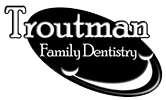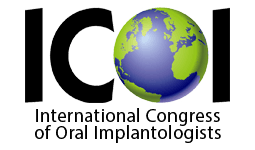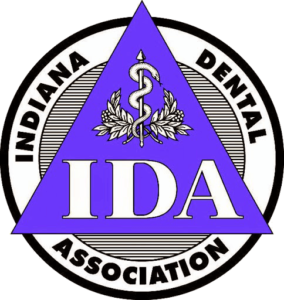By filling the gaps between your teeth, dental implants prevent your remaining natural teeth from shifting around. This promotes good oral health and helps fight against gum disease. While these replacement teeth are durable, we recommend following specific oral care guidelines to ensure you get the most out of your dental implants.
Post-Op Dental Implant Care Instructions
Proper care for your dental implants is crucial to maintaining good oral health. Brushing your teeth twice a day, flossing after you eat, and visiting Dr. Troutman for routine checkups will help your dental implants last for many years.
While everyone’s body recovers in different ways, Dr. Troutman recommends a few general tips and guidelines to follow after your procedure for a smooth and quick recovery process. These tips include:
- Avoid any rigorous spitting or sucking
- Beware of drinking through straws as this may cause bleeding
- Refrain from smoking or drinking alcohol for the first 2 to 3 days following surgery
- Rinse with warm salt water several times a day, especially after meals
- Be cautious and brush slowly so you don’t disrupt the healing process
- Keep physical activity to a minimum
Maintaining Strong and Healthy Implants
Once you’ve fully recovered from your surgery, knowing how to properly care for your dental implants will ensure that they look stunning and feel comfortable throughout your lifetime. Tips to consider for long-term care include:
- Brush and floss the dental implant lightly, but thoroughly
- Schedule an extra visit to the dentist each year (three total)
- Use an antibacterial mouthwash to rinse
Dental implants are generally the most recommended tooth replacement option for several reasons besides their aesthetic appeal, such as their natural function, durability, and ability to stimulate healthy jawbone growth. By following Dr. Troutman’s care instructions, your dental implants can last a lifetime.
Choose Gentle Oral Care Products
While your oral care routine for dental implants is no different than your natural teeth, we do recommend using gentle cleaning products. If you don’t, you run the risk of scratching the porcelain crown, the titanium fixture, or irritating the soft gum tissue around the implant.
When it comes to selecting your toothbrush, you’ll want to find one that has soft or extra-soft bristles. The softer bristles will decrease your chance of scratching either part of the implant.
When selecting your toothpaste, the important thing to remember is that some brands of toothpaste contain abrasive ingredients. Make sure to avoid any whitening toothpaste, as well as any that contain baking soda, to protect your dental implant and the tissue surrounding it. Continuously using toothpaste with baking soda in it can damage your enamel.
Using the right mouthwash is also important for dental implant aftercare. Choosing an antibacterial mouthwash can significantly decrease your chance of developing gum disease. We recommend avoiding whitening mouthwash and any brands that have alcohol in them.
Finally, you’ll want to consider the type of dental floss you’re using. Flossing is a crucial aspect of maintaining good oral health. When flossing with dental implants, it’s important to use nylon-coated floss because it’s meant to glide gently against your gum tissue.
What If I Have a Dental Emergency?
Since dental implants are permanently fused with your jawbone, they rarely require emergency care. However, some patients have damaged or broken their crowns due to facial trauma, mostly from being hit in the face.
If you experience a problem with your restoration, follow these steps to keep it safe:
-
- Make an emergency appointment with us as soon as you can
- If your crown has been damaged, let us know when you make your appointment
- If your crown has fallen out, try to store it somewhere cool and dry until you can reach our office
- Don’t use glue to try to fix the crown on your own.
When you visit Dr. Troutman for an emergency dental appointment, he’ll check your crown along with the condition of your implant. If the crown is irreversibly damaged, we’ll start constructing a new one immediately.
Frequently Asked Questions
What can I eat following my procedure?
Once your dental implants have been placed, you’ll want to stick with soft foods that are easy to eat while you go through the healing process. Food that’s hard or chewy can upset the implant site and possibly set your recovery back. Some foods we recommend after your procedure are cold soups, yogurt, applesauce, and soft or melted cheeses. Remember to stay well-hydrated and chew away from the surgical site until it’s fully healed.
What can I expect from the healing process?
During your healing period, it’s common to feel some tenderness and soreness. Any discomfort you may be feeling should begin to feel better with each passing day. If the pain becomes increasingly worse, please contact our Huntingburg office right away.
Swelling in the face near the surgical site is also common, but should ease within two to three days. Applying a cold compress to your face can help decrease the swelling and any discomfort you may be experiencing. To minimize any soreness, we recommend over-the-counter pain medications, such as ibuprofen.
Visit Troutman Family Dentistry
If you’re interested in learning more about dental implants and how to care for them, call our Huntingburg office at (812)-727-5922 and schedule a consultation with Dr. Troutman. He can answer all of your questions and help you maintain a bright, and healthy smile.





